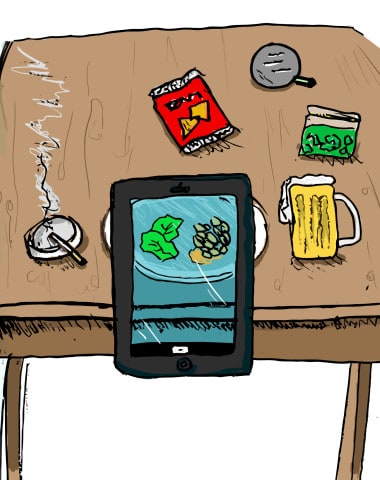The lives we lead on social media platforms versus our lives in reality tend to differ. In some cases this is beneficial, but when it comes to health, we may be projecting an image that isn’t authentic.
Putting an image on social media of yourself eating healthy or being active feels great. Maybe you share an image of yourself in your running shoes, eating a healthy lunch or a before and after snap.
Either way, these posts boost our self-esteem.
Looking at posts on Instagram with the hashtag #healthyliving reveals that they tend to receive their fair share of likes and positive comments. So now, not only did you feel great posting something originally, but you are also receiving positive vibes from others. Again, your self-esteem takes a jump.
A study published in the Journal of Medical Internet Research in August 2015 by Australian scholars Elise Carrotte, Alyce Vella and Megan Lim looks at the predictors in others liking fitness and health related content on social media. They use the term “fitspiration” several times, defining it as the content found on “weight loss/fitness motivation pages.”
These pages tend to perch on a fine balance. The goal is to inspire people to be fit and lead healthy lives without becoming a “pro-ana” — pro-anorexia and other eating disorders — page.
If you go on Instagram and search healthy living, a myriad of posts will appear. Greens, fish, avocados and even asparagus are some of the popular items. As more and more pictures of asparagus crossed my screen, I began to wonder if asparagus was more popular than I thought. Or does Instagramming food make it more palatable? Do we force ourselves to like something just so that we can get an amazing post out of it?
Our lives on social media are almost as permanent as our lives in the real world. What we post remains on the Internet or servers of social media platforms for an indefinite amount of time. We want to remember the positive, healthy image we projected. As memories sometimes drift from our minds, we want to recall the good feelings we had. We create a “utopia” for ourselves.
Although we may not think about it often, we are subconsciously curating our own posts. We want to prevent any possible negative thoughts someone may think of us. Think of the lyrics for the song “#Selfie” by The Chainsmokers.
The girl in the song contemplates her selfie on Instagram.
“Can you guys help me pick a filter / I don’t know if I should go with XX-Pro or Valencia,” which is followed by “I only got 10 likes in the last 5 minutes / Do you think I should take it down?”
She may not even realize it, but this girl is extremely — almost obsessively — worried about what other people might think of her. The wrong choice of filter would be detrimental in her mind. She feels determined to have the perfect selfie, which will give her enough likes to keep her happy. If she receives her likes quickly, her self-esteem will take a boost and she will feel healthier and better.
When we put out a healthy living image or anything similar, we are hoping to appear healthy to those who see our posts. Therefore, the motivation to look healthy can in turn actually make us healthier. Yet we need to make sure that this motivation comes from a positive place. Negative motivation does not help us in any way whatsoever. This is where the fine balance from the “fitspiration” pages come in.
As we use social media to become physically healthy, we need to think about the other health aspects. Is it really emotionally healthy when we do this? By relying on other people to bring ourselves up, we are not creating motivation from within ourselves. What about mental health? We try so hard to project an image that we are putting an enormous amount of pressure on ourselves without realizing it.
Social media has become a huge part of our livelihood, whether we realize it or not. In fact, you are what you post.
—
Image: Jeremy Britz/Graphics Editor
Leave a Reply